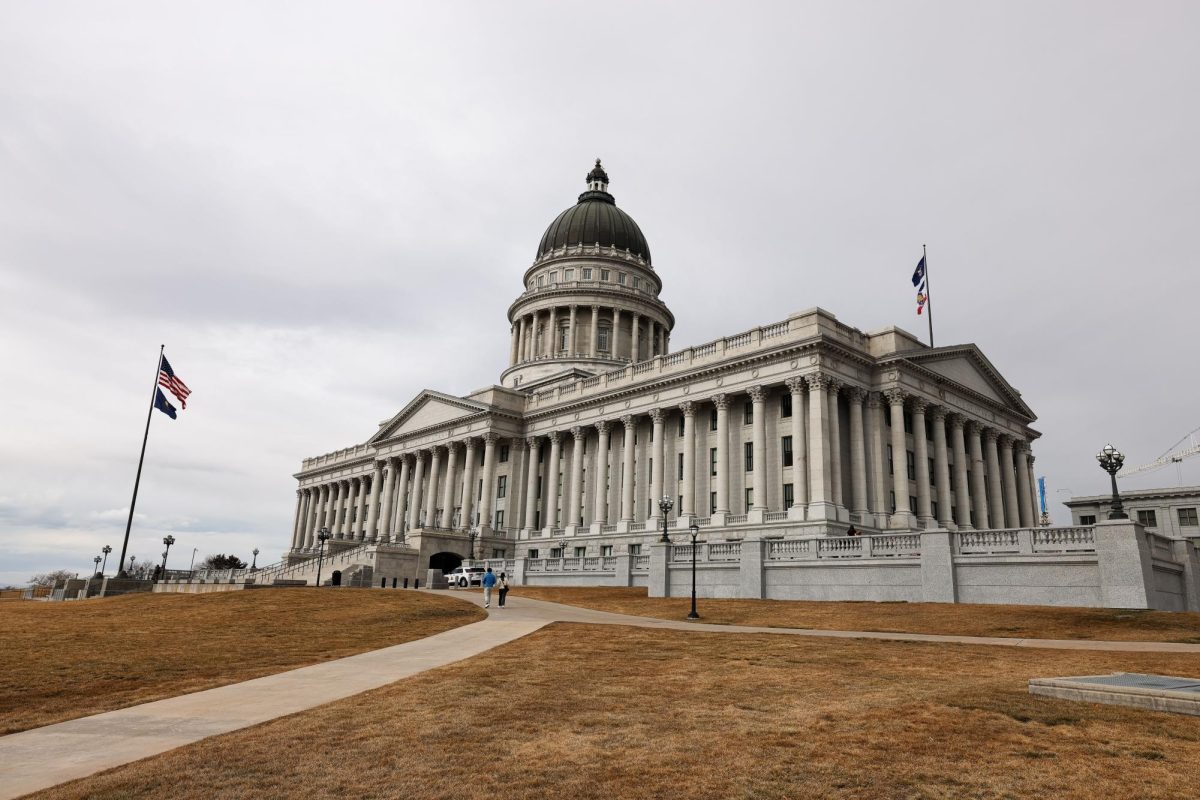Due to climate change, Great Salt Lake and many other rivers are drying at unprecedented rates. Rep. Doug Owens is sponsoring H.B. 195 to modify provisions relating to local government land use plans. Municipalities and counties will be required to consider developmental impacts on wildfires, health, welfare and energy conservation.
Policymakers must consider the environmental impacts of land management. This will help lessen the regression of Utah’s climate. Ignoring the problem will just lead to scary and severe effects on our state.
A Serious Threat
Climate change presents a serious threat to mankind and human flourishing. It affects our physical environment and economic and social conditions. Climate activists from all over the world have urged policymakers to take action before it’s too late.
The Bureau of Land Management is taking strides to help stagnate climate change. BLM proposed the Public Lands Rule to establish a framework for protecting and restoring healthy landscapes, abundant wildfire habitat, clean water and balanced decision-making.
Strides like these may be what is needed to control the poor manmade decisions that are leading to our own demise.
Responsible and sustainable land planning is a crucial step in ensuring change will be made.
Consequences
As more Utah policymakers and officials experience the effects that climate change is having on our great state, they are opting for more sustainable development.
Due to the Industrial Revolution, the U.S. has done whatever it can to encourage economic prosperity, despite the horrendous repercussions it has on the planet. Practices such as deforestation and urbanization remove the land’s natural ability to absorb carbon dioxide from the atmosphere, which increases greenhouse gas emissions.
We must remember that economic prosperity and environmental sustainability are not mutually exclusive goals. Ignoring the climate problem brings about bigger consequences. Though transitioning to a cleaner economy will entail short-term costs, delaying it will be even more costly. Rather than simply aiming to grow our economy, we must also aim to sustain our state and all its beauties.
The NRPA found that because of climate change, many recreational activities took a hit. Snow seasons are shrinking. Commercial operators are seeing many more lost snow days. This is caused by the highly unpredictable weather and shorter shoulder seasons. The economic impacts of low snow can total $1-2 billion a year.
It is our responsibility as human beings to save and maintain our planet as long as possible. To do so, we must begin by rethinking our approach to land use and prosperity.
Time for Sustainability
Due to the country’s continuous urbanization, we will not be able to reach the greenhouse gas (GHG) reduction targets. We must prioritize developing more human-centered architecture. Such neighborhoods and architecture will help adapt to climate change, improve public health and promote access to recreation.
Focusing our land use measures on mitigation and adaptation will help slow this problem down. Land mitigation focuses on changing practices that increase GHG emissions and reduce environmental damage. These efforts involve building at greater density with mixed land uses and creating transportation adaptations.
Sustainable land use will create better climate change mitigation, biodiversity conservation, water resource management and food security. The United Nations found that within the next 30 years, food supply and food security will be severely threatened if no actions are taken to address and reduce climate change.
Holding our policymakers and lawmakers accountable for their lack of action will be what propels climate prosperity. Dutch activists successfully rallied the Dutch Supreme Court to issue that the government has a human rights obligation to urgently reduce GHG emissions.
Save Utah
Climate change is happening in Utah whether we like it or not.
Time is short. Creating sustainable and environmentally conscious land management plans will encourage our residents to live more sustainable and flourishing lives.
This will affect everyone one way or another. We cannot avoid the detrimental impacts that this will have on our future and later generations. We are responsible for what has happened to our beloved planet.





John Hedberg • Feb 22, 2024 at 5:16 pm
p.s. It may be better to say that higher atmospheric CO2 doesn’t correlate with higher temperatures. Sometimes, the opposite has been true~
John Hedberg • Feb 22, 2024 at 1:56 pm
“Policymakers must consider the environmental impacts of land management.”
I can wholly agree with the need to consider environmental impacts when it comes to land development, since the lack of brush removal in wilderness areas probably has as much do so with wildfires as over-development in these same forests. However, emerging data shows that neither of these things has anything to do with Climate Change.
Don’t worry so much about Global Warming. A coalition of 1608+ world scientists, including Nobel physicists and even an Obama administration climate advisor, have published a signed declaration stating that while climate change is occurring, there is no actual emergency due to changing conditions: the changes are neither very fast nor very severe, and since CO2 is literally plant food, the world’s growing area has actually been expanding & getting greener (satellite data supports this).
It turns out that a lot of the climate models were based on faulty assumptions (hypotheses) that exaggerated the dynamics of change, and we’re actually near the lowest levels of atmospheric CO2 ever registered in Earth’s planetary history: scientific study shows that most plants are adapted (evolved) to much higher CO2 levels than today’s, and vast new areas of presently subarctic permafrost are slowly warming, plants are growing faster in arid regions, and there is progressively more land area that supports green life in vast wilderness habitats like Northern Asia, Upper Canada, and Greenland.
Also, new examination of ice core samples from around the globe appear to contradict the premise (hypothesis) that higher CO2 levels precede higher temperatures. The data shows that the reverse may be true. Some of the hottest periods in the last few hundred million years had some of the lowest CO2 levels, and some of the coldest periods had some of the highest CO2 levels, so the latest thesis (backed by hard data) is that solar activity has measurable periods of higher and lower activity, and it’s these fairly consistent solar “tides” which account for the temperature changes, not CO2 levels, since atmospheric CO2 seems more predicated on plant growth (plants are the planet’s natural carbon capture adaptation, so in periods of higher sun activity, CO2 gets sucked up by ever greater propagation of flora on every available surface: CO2 is a follower, not a predictor, of better/worse plant growth conditions).
So, in consideration of everyone’s health and well-being, we can all alleviate our existential worry over a natural warming cycle that emerging data now shows could be hugely beneficial rather than a disaster: such temperature and CO2 fluctuations during the past few hundred million years created super-flourishing events of natural life, not the opposite, since faster-growing plants from all the extra CO2 provided abundant food for all kinds of fauna, a lot of it super-sized~! (shout out to the Natural History Museum).
(shout out to the Natural History Museum).
Fred Samme • Feb 24, 2024 at 4:13 pm
I’m curious to find out more of the research that you mentioned; are there sources you could point to for me to do some more digging? A lot of this information is new to me.
John Hedberg • Feb 26, 2024 at 8:56 am
These are a good starting point:
1. CLINTEL World Climate Declaration: “There is no Climate Emergency”, signed by 1800+ world scientists so far
2. “Unsettled: What Climate Science Tells Us, What it Doesn’t, And Why It Matters” by Steven E. Koonin, former climate advisor (Under-Secretary of Science, Department of Energy) to President Barack Obama.
3. Professor John F. Clauser, PhD, winner of the 2022 Nobel Prize in Physics (interviews)
I hope this helps~